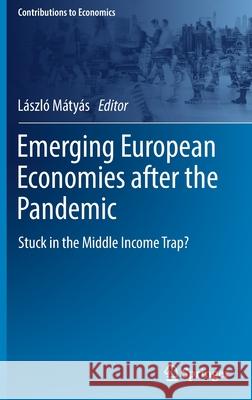Emerging European Economies After the Pandemic: Stuck in the Middle Income Trap? » książka
topmenu
Emerging European Economies After the Pandemic: Stuck in the Middle Income Trap?
ISBN-13: 9783030939625 / Angielski / Twarda / 2022 / 632 str.
Emerging European Economies After the Pandemic: Stuck in the Middle Income Trap?
ISBN-13: 9783030939625 / Angielski / Twarda / 2022 / 632 str.
cena 885,61
(netto: 843,44 VAT: 5%)
Najniższa cena z 30 dni: 771,08
(netto: 843,44 VAT: 5%)
Najniższa cena z 30 dni: 771,08
Termin realizacji zamówienia:
ok. 22 dni roboczych.
ok. 22 dni roboczych.
Darmowa dostawa!
This edited volume examines the development path of eight Central and Eastern European countries with an overlapping historical background that joined the European Union between 2004 and 2013, and identifies the main similarities and differences between the countries concerned.
Based on wide comparative data analysis of Bulgaria, Croatia, The Czech Republic, Hungary, Poland, Romania, Slovakia, and Slovenia, each chapter in the volume provides detailed information about the state of the economy in a specific area preceding the pandemic shock. The book offers a detailed snapshot of the state of the different areas of the economy, starting from the time when the countries concerned came out of the 2008 financial crisis, up to the date when COVID-19 hit. Further, each chapter analyzes the effects of this unprecedented shock on a particular field, which is followed by highlighting the main problems the countries are facing at present and in the near future, together with identifying the available policy options. Finally, before concluding and making general and country-specific policy recommendations, some thoughts will be given to longer-term prospects. More specifically, the question of how the subject area could contribute to avoiding the "middle-income-trap" that this region may be facing will be addressed.
The comprehensive approach makes this volume a must-read for scholars and students of economics, as well as policy decision-makers in Europe, interested in a better understanding of the region's economic development.











